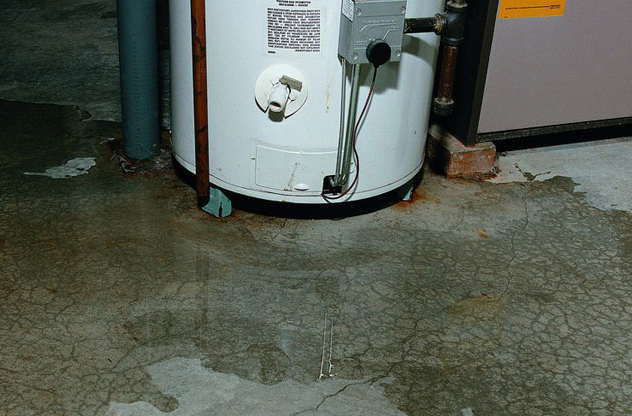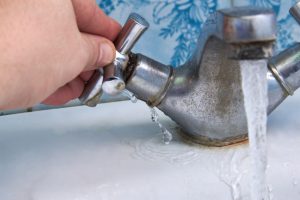What are your concepts on Common Causes of Water Leaks in the Home?

"Be cautious of little costs. A small leak will certainly sink an excellent ship." - Benjamin Franklin.
He couldn't have actually been a lot more appropriate because water leaks in our homes result in a waste of sources, raising our water costs. This boost could appear negligible at first, it can lead to substantial costs that can break your financial institution. Besides a rise in bills, water leaks additionally trigger unwanted organic growth, structural damages, as well as also electrical threats.
Finding out if you have a water leakage isn't constantly simple due to being not able to see a lot of the pipework in your home. Nevertheless, If you have had a boost in your water costs recently, noticed water discolorations on ceilings and walls, smelt poor smell, etc. You might intend to take into consideration requesting plumbing services to get it had a look at.
There are several reasons for water leakages, as well as we have assembled the typical factors below. Examine to see if you have had related problems in your home lately.
Compromised pipe joints
Pipeline joints are the parts of our plumbing system where the pipes attach. They are the weakest point of our plumbing system. Because of this, they are more at risk to wear and tear. It is necessary to keep in mind that despite the fact that pipes are created to withstand pressure as well as last for some time, they weren't designed to last permanently; consequently, they would weaken over time. This wear and tear might bring about splits in plumbing systems. An usual indicator of harmed pipeline joints is extreme sound from faucets.
High water stress
You observed your home water stress is more than typical but then, why should you care? It runs out your control.
It would be best if you cared because your typical water pressure must be 60 Psi (per square inch) and although your residence's plumbing system is created to hold up against 80 Psi. An increase in water stress can place a strain on your house pipelines and also cause splits, or worse, burst pipes. Get in touch with an expert about managing it if you ever before see that your residence water stress is greater than normal.
Rust
As your pipework gets older, it gets weaker and also extra susceptible to corrosion after the regular flow of water via them, which can gnaw at pipelines as well as trigger cracks. A noticeable indicator of corrosion in your home plumbing system is discoloration and although this might be tough to find because of most pipelines hidden away. We advise doing a constant examination every couple of years and transform pipes once they are old to make sure an audio plumbing system
Blocked drains pipes
Food fragments, dirt, as well as oil can create clogged up drains and block the passage of water in and out of your sink. Increased pressure within the rain gutters can finish as well as trigger an overflow up cracking or breaking pipes if undealt with. To avoid blocked drains pipes in your home, we recommend you to stay clear of pouring bits away and normal cleansing of sinks.
Broken seals
Another source of water leakages in residences is damaged seals of house devices that make use of water, e.g., a dish washer. When such home appliances are set up, seals are mounted around water ports for very easy passage of water through the maker. Therefore, a busted seal can trigger leakage of water when in use.
With little or no knowledge of plumbing, recognizing your home's plumbing system enough to take care of some of these problems (without effect) can be a headache. Contact plumbing specialists in Pittsburgh, Providence, Rochester, as well as environ today, as well as they'll make those concerns vanish.
He could not have actually been more best since water leakages in our homes result in a waste of resources, enhancing our water bills. If you have had a boost in your water expenses lately, observed water spots on wall surfaces and ceilings, scented poor smell, etc. A rise in water stress can place a stress on your house pipelines as well as lead to fractures, or even worse, ruptured pipelines. One more cause of water leaks in homes is broken seals of home appliances that use water, e.g., a dishwasher. When such devices are set up, seals are installed around water adapters for easy passage of water via the device.
5 TIPS IN DETECTING A WATER LEAK IN YOUR HOUSE
Water leaks can be hard to find in your home, yet they can be so common. We rely on water every day in our home, which is why a leak can cause big problems. By detecting them early, you can save money and further damage, getting the problem fixed as soon as possible. Here are 5 tips to help you detect a water leak in your home, so you can contact a plumber straight away and get the issue sorted.
Check your water meter
Many people underestimate the value of the water meter in their home. It can be one of the best ways to tell if you have a leak early on, so you can get on top of it before issues start arising. Start by turning off all the water in your home: taps, washing machine, dishwasher, etc. Now take a look at the meter – if it’s still changing with everything turned off, it’s likely you have a fast-flowing leak that you need to get on top of straight away. If nothing changes, then leave your meter for an hour or two and come back to it. Did it change in this time? It’s likely you have a slower leak, which isn’t as urgent but still handy to get fixed so it doesn’t become a bigger problem.
Keep an eye on your bill
Another good way to detect a leak in your home is by keeping an eye on your water bill. It helps if you have a past bill from the same period of time. You can compare like for like and determine whether your water usage has increased significantly. If it has, there may be a leak in your system that you haven’t picked up before. A professional plumber can check through all of your pipes and determine where it is coming from.
Look for damage
If you have a leak inside your home, you will notice damage over time. Take a look at your showers and bathtubs and note whether any of the tiles surrounding the area seem to be discoloured or damaged in any way. There may be water stains, mould or peeling material that has resulted from a build up of moisture over time. Make sure you take a look under sinks at the back of cupboards that don’t get accessed regularly. This is where damage can go unnoticed and build up over periods of time.

I stumbled upon that entry about Where to Find Water Leaks while doing a lookup on the internet. Sharing is caring. One never knows, you could be helping someone out. I truly appreciate reading our article about How to Find and Prevent Water Leaks in Your Home.
Prevent further damage.